showing entries tagged "Data Security"
Common Scam Prevention Tips
EmailsStart by checking the sender’s email address; legitimate organizations use official domain names, so be cautious if it appears unusual or contains misspellings. Pay attention to the email’s tone and grammar; scammers often use urgency, fear, or overly formal language to exploit recipients. Be careful with unexpected attachments as they may contain malware. Never send personal or financial information in an email and keep your anti-virus software and operating system up to date.
Red Flags of Holiday Scams
As the holiday season approaches, it’s a time of joy, celebration, and unfortunately, an uptick in various scams aiming to take advantage of your festive spirit. Kohler Credit Union is committed to ensuring you remain safe and secure by sharing valuable insights on how to safeguard yourself from scams.
by: banzai
7 Internet Safety Rules
Follow these 7 internet safety rules to help keep yourself and others safe online.
by: banzai
Improve Your Cybersecurity
It’s likely you use a phone, computer, or some other device every day (you’re even using one right now!). But just because you use it often doesn’t mean you can let your guard down.
by: banzai
Romance & Dating Scams
They love me, they love me not. Here’s how you can prevent yourself from falling victim to some of the sneakiest crimes out there—romance scams.
by: banzai
Scams Targeting Seniors
Scammers target seniors more aggressively than any other group. Recognizing the most common scams helps prevent your money and personal information from getting stolen.
by: Banzai
Ransomware
Everyone has secrets—personal data, passwords, private documents, etc—and people will spend lots of money to keep this information secret or gain access to it. Ransomware is just one way that hackers win access to personal information, expecting its owner will pay to win it back.
by: banzai
Recognizing and Avoiding Scams
Con artists cheat Americans out of billions of dollars every year. Recognizing red flags for potential scams can help protect you, your loved ones, and your hard earned cash.
5 Identity Theft Jackpots (and How You Can Safeguard Against Them)
Identity theft is nothing new, and yet it still manages to cost its victims billions of dollars (yes, that’s billions with a “b”) globally each year—not to mention the time and hassle involved in recovering a stolen identity.
Why We Get Scammed
If you use a cellphone or have an email account, you’ve almost certainly been exposed to an attempt at mass marketing fraud. Common examples include being interrupted by an annoying robocall just as you start eating lunch, or waking up to a suspicious message in your email inbox that somehow slipped through the spam filter. Sometimes, the attempted fraud is kind of funny—the wording is so strange or the premise is so ridiculous (“An exiled prince needs my help transferring a million dollars? Really?”) that we’re left wondering how anyone could possibly fall for such an obvious money grab.



